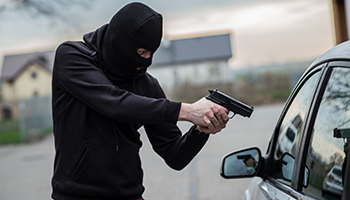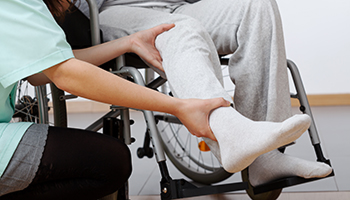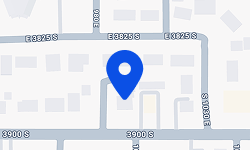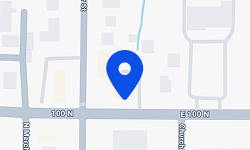in the Courtroom









Salt Lake City Personal Injury & Criminal Lawyers
We Are Your Advocate in the Courtroom
Don’t go it alone. For you, this may be your first time facing a criminal charge. For us, it’s what we do every day. With over 50 years of combined criminal defense experience, our firm has stood beside thousands of clients in courtrooms across Utah — from Ogden to Salt Lake City to Provo to St. George.
We’ve defended clients against every type of charge imaginable — from homicide, rape, and assault to DUI, theft, and drug possession. There is no felony or misdemeanor we haven’t handled.
You’re Not Alone — And You’re Not Just a Case Number
Being charged with a crime can make you feel like your world is collapsing. Fear. Shame. Confusion. We understand what you’re going through, and we’re here to help. At Liberty Law, we don’t just represent you — we fight for your future.
Criminal defense isn’t just our job — it’s our passion. We care deeply about our clients and believe every person deserves to be heard and defended. When you hire us, you become part of our team. We combine your story and perspective with our legal strategy and courtroom experience to build the strongest defense possible.
Our Process: What to Expect
- We Step In Immediately
Once you hire us, we file a Notice of Appearance with the court and prosecutor. From that moment, you no longer need to speak with law enforcement or prosecutors — we handle everything. - We Gather the Evidence
We request discovery — all police reports, witness statements, photos, and video footage (dashcam or bodycam). We review every piece of evidence with a critical eye to find inconsistencies or violations of your rights. - We Build Your Strategy Together
We schedule a private strategy call with you to review the evidence and discuss goals. We explain the legal options clearly so you can make informed decisions about your defense. - We Fight for the Best Possible Outcome
Whether through skillful negotiation or aggressive trial representation, we pursue the best resolution for your case. Some cases resolve quickly; others take time and persistence. Either way, you’ll be informed every step of the way.
At Liberty Law, our goal is simple: protect your rights, your freedom, and your future.
Cases We Handle at Liberty Law
At Liberty Law, we defend clients facing the most serious criminal charges in Utah. Our firm is committed to protecting your rights, challenging the government’s evidence, and pursuing the best possible outcome in every case. Below are examples of major case types we have handled.
Homicide Defense in Utah
Homicide, also known as murder, is the intentional killing of another person. In Utah, homicide is charged as a first-degree felony, meaning a conviction carries a potential sentence of 5 years to life in Utah State Prison.
To convict you, the prosecution must prove beyond a reasonable doubt that you intended to cause the victim’s death. This requires evidence showing the killing was not accidental, reckless, or the result of self-defense.
Challenging the Intent Requirement (Mens Rea)
Your mental state—known as mens rea—at the time of the incident is critical. Even if a death occurred, it does not automatically mean you committed murder. If the evidence shows the death resulted from negligence or recklessness rather than intent, the charge may be reduced to a second-degree felony, significantly lowering the potential penalties.
Self-Defense and Justification Hearings
A powerful defense in homicide cases is self-defense. Utah law allows individuals to use force, including deadly force, when reasonably necessary to protect themselves. Courts may hold a justification hearing specifically to determine whether your actions were legally justified. If successful, the charge may be dismissed.
If you are facing homicide charges, it is essential to have an experienced Utah homicide defense attorney advocate for your rights from the very beginning.
Rape and Sexual Assault Defense
Rape is defined as engaging in sexual intercourse with another person without their consent. In Utah, rape is a first-degree felony, punishable by 5 years to life in prison.
The prosecution must prove that sexual activity occurred and that the other person did not consent. Importantly, lack of consent does not require physical force or violence. It can simply mean the individual did not want to engage in sexual activity.
Why Rape Cases Are Challenging
Rape allegations are among the most difficult to prove—and to defend. Often:
- There are no witnesses other than the two individuals involved.
- There may be no physical or forensic evidence, such as DNA or signs of injury.
- The case may rest entirely on conflicting statements—commonly referred to as “he said, she said” situations.
In Utah, the accuser’s statement alone can be sufficient for the state to file charges and proceed to trial.
Statutory Rape
Utah law states that individuals under 18 years old cannot legally give consent. Therefore, sexual activity with a minor can result in rape charges, even if the minor willingly participated. This makes statutory rape a highly technical and serious offense requiring skilled legal representation.
If you are accused of rape or sexual assault, contacting a knowledgeable Utah sex crimes defense lawyer is critical to protecting your future.
Domestic Violence (DV) Charges in Utah
Domestic violence refers to crimes committed against family members, cohabitants, current or former romantic partners, or individuals who share a child. Many ordinary offenses—such as assault, criminal mischief, or threats—can be elevated to domestic violence charges solely because of the relationship between the parties.
For example, punching a stranger constitutes assault, but punching a spouse or partner becomes DV assault.
Key Differences Between DV and Non-DV Charges
1. DV Charges Are Enhancable
Domestic violence offenses escalate with repeat allegations. For instance:
- A first DV assault is typically a Class B misdemeanor.
- A second DV assault within 10 years is automatically enhanced to a Class A misdemeanor.
- Further offenses may be charged as felonies.
2. Domestic Violence Carries Serious Collateral Consequences
A DV conviction can lead to consequences far beyond jail time, including:
- Loss of firearm rights under federal law
- Mandatory treatment or counseling programs
- Protective orders impacting your home, family, or custody rights
Because of these high stakes, it is crucial to consult an experienced Utah domestic violence attorney as early as possible.
Contact Us
- 1 Free Case Evaluation
- 2 50 Years of Experience
- 3 Trusted Attorneys
Fill out the contact form or call us at 801-264-6666 to schedule your free consultation.
Leave Us a Message
Client Reviews
My experience with James was a good one. Very good attorney. He would always call me and let me know what is going on with my case. I am very happy how everything turn out. He help me out a lot. I am very thankful and blessed to have him as my attorney. Thanks man!
I found Liberty Law to be very capable and on many occasions. I have seen them exceed all my expectations and have always been 100% satisfied with all outcomes of my cases. I would highly recommend the attorneys at Liberty Law to anybody I truly cared about.
I highly recommend Liberty Law. They did a great job today at the Provo Justice Court. My attorney was clear, direct and was able to demonstrate to the judge that I was being honest. Even though the defendant's lawyer played dirty, They handled the situation really well and acted very professional...
Thank you James Lee for your assistance and advice with our case. We very much appreciate it and will recommend you in the future to our friends and family.
Taylor made the process really easy and stress free! He was kind, helpful, and clear about everything. Hennie, his legal assistant, was also great! Super attentive and always quick to respond. Taylor handled everything so efficiently and turned what felt overwhelming into something simple and easy...
Legal News
3 Ways to Handle a Traffic Ticket in Utah – Liberty Law Although we always recommend hiring an attorney for any legal matters, it’s understandable that you may want to resolve your traffic ticket on...
Here’s a Useful Guide If You’re Pulled Over in Utah There could be many reasons why you were pulled over in Utah.. What do you do when that happens? Being pulled over doesn’t necessarily mean...
5 Reasons Why You Need to Hire a Car Accident Lawyer for Your Case In 2021, there were 61, 406 car accidents in Utah. Often, these are life-changing events that leave victims struggling to recover physically...
Frequently Asked Questions
Our Offices
We Accept the Following Payment Solutions












